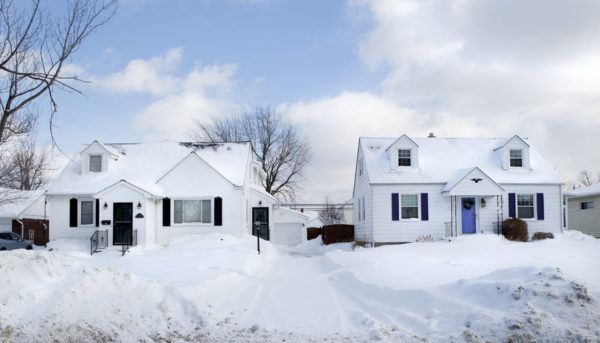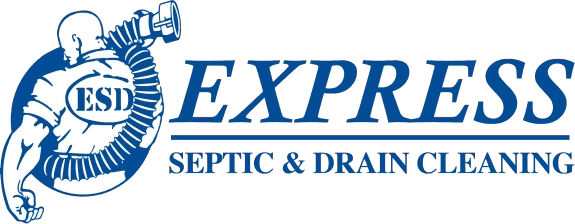The cold winters of Nampa, ID can put extra strain on commercial and residential septic systems. The cold weather can freeze the ground, pipes, and tanks, causing expensive damage to septic systems. Properly preparing a septic tank and getting regular maintenance are crucial to preventing complications and winter cold-related setbacks. Here are some common winter septic tank issues and tips on how to deal with them.
Freezing Pipes and Septic Tanks
If frost occurs and snow falls around a septic tank, freezing problems may arise. Should the parts of a septic system freeze, the natural bacteria inside it will either be unable to break down the waste in the tank or be very slow at doing so. When the waste in the tank is not sufficiently broken down, the system can get overloaded and clogged. If wastewater is allowed to accumulate in a frozen line, the line could rupture, leading to a severe health hazard.
Freezing pipes and tanks can be avoided by covering the septic tank with a blanket during the wintertime, especially at night. Using the septic tank daily so that water runs through it minimizes the chances of freezing. When leaves, mulch, or plants are allowed to cover the pipes toward the end of the fall, these will provide additional insulation over the ground.
Overuse During the Winter
There are several holidays that happen during the winter. This means gatherings and celebrations in the house, meal planning, and many visitors. Increased showers, laundry, food preparation, and toilet use can overwork your septic system.
Additionally, guests who are unfamiliar with how septic tanks work might constantly flush objects down the toilet, damaging your septic system. The best way to minimize the load a septic system takes during the busy winter is to let all guests know how to use the bathrooms and kitchen sinks appropriately. It might be a little bit uncomfortable to do this first, but it’s a lot easier than dealing with a damaged septic system.
The Sudden Thaw of Frozen Water
Cold water can be damaging to your septic system when frozen water thaws. The unexpected flow of thawing water may flood the drain field, inhibiting water from draining out of the septic system. As a result, water could travel backward through your pipes and find its way into the drains and toilets inside your house. Flooded drain fields may cause untreated sewage to infiltrate groundwater, local lakes, and other nearby bodies of water. This is not only bad for you as a homeowner, but it can also lead to environmental contamination.
Snow and Soil Pressure on the Septic Tank
Light, fluffy snow might weigh around seven pounds per cubic foot. Compacted snow can weigh up to 20 pounds or more per cubic foot. If the snow gets packed and pushed down around your septic system, the weight of the snow, coupled with the weight of the soil, can cause several problems. It can lead to a freezing system, prevent wastewater from draining properly, and create pressure over the tank and piping, leading to damage that will make the tank freeze more easily. Suppose the land around your septic tank is well aerated before the winter, and snow is regularly cleared from on top of the septic system. In that case, chances are it will not be impacted by winter-related damage.
Not Using the Septic Tank Enough
You might be surprised to learn that when the bacteria in your septic tank digest organic waste, the process keeps your septic tank warm. This is why regularly flushing the toilet, running the shower, and using the kitchen sink to prepare food and wash dishes during the winter are good for your septic tank.
Running warm water frequently protects pipes from freezing. If the septic tank is used sparingly, it is more likely to freeze. Snowbirds who travel to warmer climates during the winter and leave their house unoccupied may return to find the septic system damaged. The low level of water and sewage flowing through the system makes it impossible for it to maintain a constant temperature, leading to damage.
If you plan to be away from your home during the winter, contact the professionals at Express Septic & Drain Cleaning. We can help you empty your tank and prepare your system for your time away.
Cracks in Water Pipes
If the pipes in your septic tank are clogged or leaking, they are probably not draining correctly. This leads to preventable damage to your septic tank and surrounding areas. The more damage the pipes have, the higher the chance that your septic tank will be damaged as well.
Leaks during the winter increase the likelihood of freezing, further weakening the septic system. Clogs will form, and wastewater will accumulate in the pipes, leading to further impairment and eventually contaminating the ground water.
The best way to address this issue is to have our professionals at Express Septic & Drain Cleaning fix leaking pipes before the winter cold arrives. We can take care of clogs and leaks as soon as they become apparent, preventing these problems from escalating in severity.
How Do You Know Your Septic Tank Is Frozen?
During the winter, water freezes in lakes, in rivers, and on the ground. The frost line determining how deep water will freeze in the ground varies based on where you live. It can be up to a hundred inches deep in places like northern Minnesota, with most of the country ranging between 20 and 50 inches deep. An occasional unseasonal cold snap can drive the frost line down further to the point where it affects your septic system.
If your septic lines are installed too close to the surface, they are at risk. If there is no snow to serve as an insulator, the lower soil temperature makes it easier for your septic tank to freeze.
A frozen septic tank is a potential plumbing emergency that could require the assistance of septic tank professionals. Some signs that your septic tank could be frozen include a sink that will not drain. Drains in your home will function properly because they are clogged with ice. In extreme cases, you may see sewage backing up into your residence.
If your septic tank is frozen, don’t try to thaw it yourself. Hire professional plumbers at Express Septic & Drain Cleaning to thaw it out. We have the tools, knowledge, and know-how to fix the problem safely and effectively.
Providing Outstanding Septic Services in Nampa
Our experts at Express Septic & Drain Cleaning provide a wide range of septic tank services. We take pride in ensuring that the work done by our team is professional, courteous, fast, and clean. Those on our staff are drug tested and certified. They undergo a full background check and receive ongoing training on new technologies. We maintain an A+ rating with the Better Business Bureau and have been furnishing septic tank service for nearly 20 years.
Our services include septic system pumping, septic system installation and replacement, hydro jetting, tank locating and inspections, preventative maintenance, enzyme treatment, and earth busting. If your septic tank needs attention, we’ve got you covered. Contact Express Septic & Drain Cleaning today to get the best possible results for your hard-earned money!



